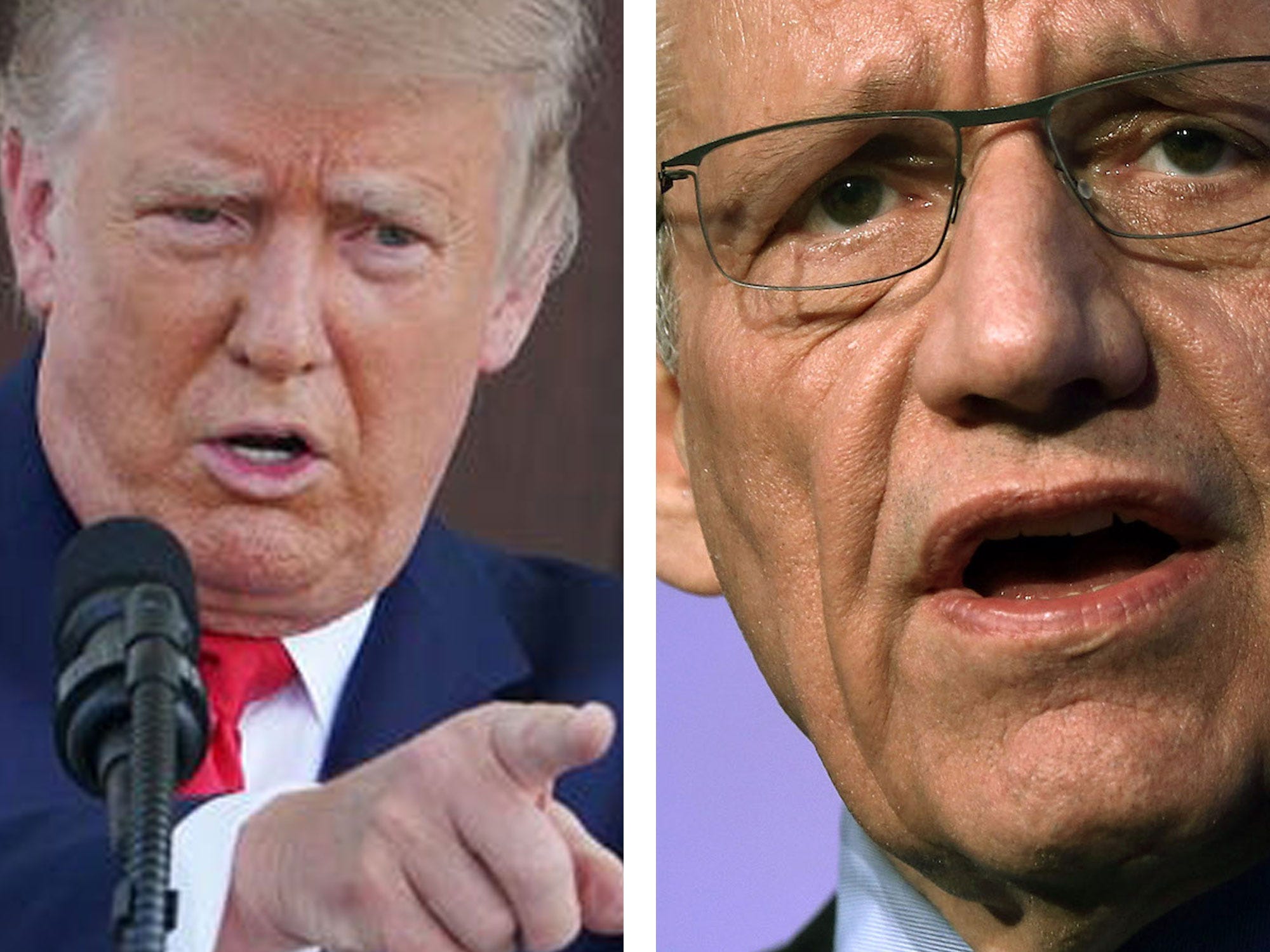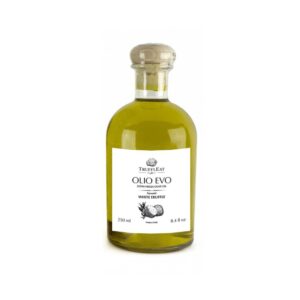- Former President Trump claims he owns the audio rights to interviews conducted by Bob Woodward.
- But legal experts say it’s unlikely a court will agree with Trump, who claims he’s owed $50 million.
- It’s “a huge reach,” one lawyer told Insider.
Thanks for signing up!
Access your favorite topics in a personalized feed while you’re on the go.
Donald Trump wants to get paid or, at the very least, he wants to let everyone know that he’s mad.
In a lawsuit filed last month, lawyers for the former president argued that he’s due a hair under $50 million from journalist Bob Woodward and his publisher, Simon & Schuster, over the release of an audiobook containing more than 8 hours of interviews conducted while he was still in the White House.
“The case centers on Mr. Woodward’s systematic usurpation, manipulation, and exploitation of audio of [former] President Trump,” states the complaint, filed with a federal court in Florida. Woodward, the suit alleges, was entitled to use that audio for a written book — emphasis on “a,” and “written” — but when that book did not sell as well as he’d hoped, the suit claims (“‘Rage’ was a complete and total failure”), he broke his word and packaged the recordings as a separate work.
The lawsuit hinges on an alleged promise that does not appear to have been made in writing. To support the case that The Washington Post journalist violated a contract with the former president, the lawsuit quotes a December 2019 exchange at Mar-a-Lago in which Trump, asked to speak on the record, responds: “For the book only, right? Only for the book.” Woodward responds in the affirmative.
But the next line, from Trump and quoted in his own lawsuit, points to the ambiguity of that verbal agreement, indicating that the underlying issue was not whether The Washington Post journalist intended to publish one book (or two, or three), but whether he intended to use the material for articles in a newspaper: “So there’s no stories coming out, okay.”
Experts consulted by Insider suggest that the suit, while not nearly as flimsy as the former president’s election-related litigation, is unlikely to succeed — and might just be a way to lend weight to a grievance, legitimate or not, that has no legal remedy.
“It’s a press release designed as a complaint,” Lloyd J. Jassin, a lawyer who specializes in copyright disputes, said in an interview. Trump styles himself as a savvy businessman — his lawsuit lists all his best-selling books on how to get rich — and yet he got burned by a reporter.
“There’s no detriment to him other than injury, in my opinion, to his ego and image,” Jassin said.
A Trump win could make reporting harder
Woodward’s book “Rage,” based on his 20 interviews with Trump, was published by Simon & Schuster in October 2020, selling more than 600,000 copies in its first week — a blockbuster for any other author, but somewhat below expectations for the two-time Pulitzer Prize winner. The audiobook didn’t go on sale for another two years — after, Woodward says, he decided its release served the public interest.
“You see who this man is, what he cares about, the self-focus, the absence of being concerned about the people out there,” Woodward explained in an interview on MSNBC. “This is while he was president in 2020. All this, it is an amazing portrait of a man.”
Trump, per his lawsuit, believes he should have had veto power.
“If Woodward intended to create an oral history in which he could claim rights,” the complaint states, “then according to best industry practices, he would have had [former] President Trump as the participant sign over his rights as part of the standard procedures of conducting the interview, after each recording or at the end of the last interview. Woodward did not adhere to this standard and, as such, relinquished any such rights.”
Journalists, however, do not typically ask sources to sign anything before an interview, much less documents outlining potential revenue sharing.
Art Neill, clinical professor and director of the New Media Rights Program at California Western School of Law, said it’s unlikely that a judge will want to, among other things, establish a precedent imposing a laborious new requirement on newsgathering.
“A decision in his favor would create more friction, day to day, for journalists who would have to go even further in terms of thinking about what kind of contracts and releases they’re going to get signed by sources,” Neill said.
To even get to that point, Trump would need to show not only that he had ownership over the interview, but that the two parties explicitly agreed to not release the audio.
Even if Woodward had lied by omission that would likely not be enough for a court to step in and assert that an ambiguous contract had been violated, with the remedy being that a politician — who is once again running for the highest office — is entitled to a share in the revenue generated by a reporter’s interview. A judge would also have to rule that, copyright and contract law aside, there is no “fair use” justification for a reporter publishing a president’s remarks.
“That’s a huge reach,” Neill said.
A free press and the public interest
Trump, famously, did not distinguish between himself, the oft-licensed brand, and the office of the presidency. That much is evident in his lawsuit, which asserts personal ownership over statements he made in the White House while being paid a taxpayer-funded salary, complaining that Woodward and his publisher released their audiobook “solely for their own financial gain and without any accounting or recompense to him.”
But the argument for monetary damages is undermined, in part, by something else the lawsuit appears to acknowledge. The complaint argues that what is billed by Woodward and his publisher as “raw” audio was in fact lightly edited, implying malice and providing a transcript noting the words that were omitted from the final product — something that could only be done if one had access to the original recording.
Trump could have published and sold this audio himself, then, at least in part. But why would he? The release was generally considered embarrassing for the former president, showing that he publicly downplayed the severity of COVID-19 in order, as he put it, not to “panic the people,” and intervened to protect a Saudi crown prince — “I saved his ass” — from being sanctioned over the murder of a US citizen.
Trump, of course, is also not a normal person. He is, rather, a former head of state and, at the time he was speaking with a famous journalist, he was an American president opining on both domestic and foreign policy, often speaking from the Oval Office, in the middle of a pandemic.
A publisher’s chief interest may be making money (it could even be an author’s), but experts say that would not alter the fact that there is, inherently, a public interest served by releasing what a powerful politician has to say about matters of life and death. Some have even argued that the former president’s remarks should have been released sooner, not saved for a book at all.
In a joint statement, Woodard and Simon & Schuster said they are confident Trump’s lawsuit is “without merit.”
“All these interviews were on the record and recorded with President Trump’s knowledge and agreement,” the parties told Insider. “Moreover, it is in the public interest to have this historical record in Trump’s own words. We are confident that the facts and the law are in our favor.”
Free speech advocates are not universally concerned with the case. The American Civil Liberties Union and the Foundation for Individual Rights and Expression both declined to comment. But some do fear that any ruling in the former president’s favor, however unlikely, would set a troubling precedent, enabling a politician to dictate how and when their own words, while in office, can be made public.
“A sitting president knowingly sat down for recorded interviews with one of the most accomplished journalists of our age and talked about matters of great public interest,” Seth D. Berlin, an attorney with the firm Ballard Spahr who has represented media clients in copyright and other disputes, told Insider. “Filing a lawsuit over publishing those interviews turns the First Amendment on its head.”
Have a news tip? Email this reporter: cdavis@insider.com




